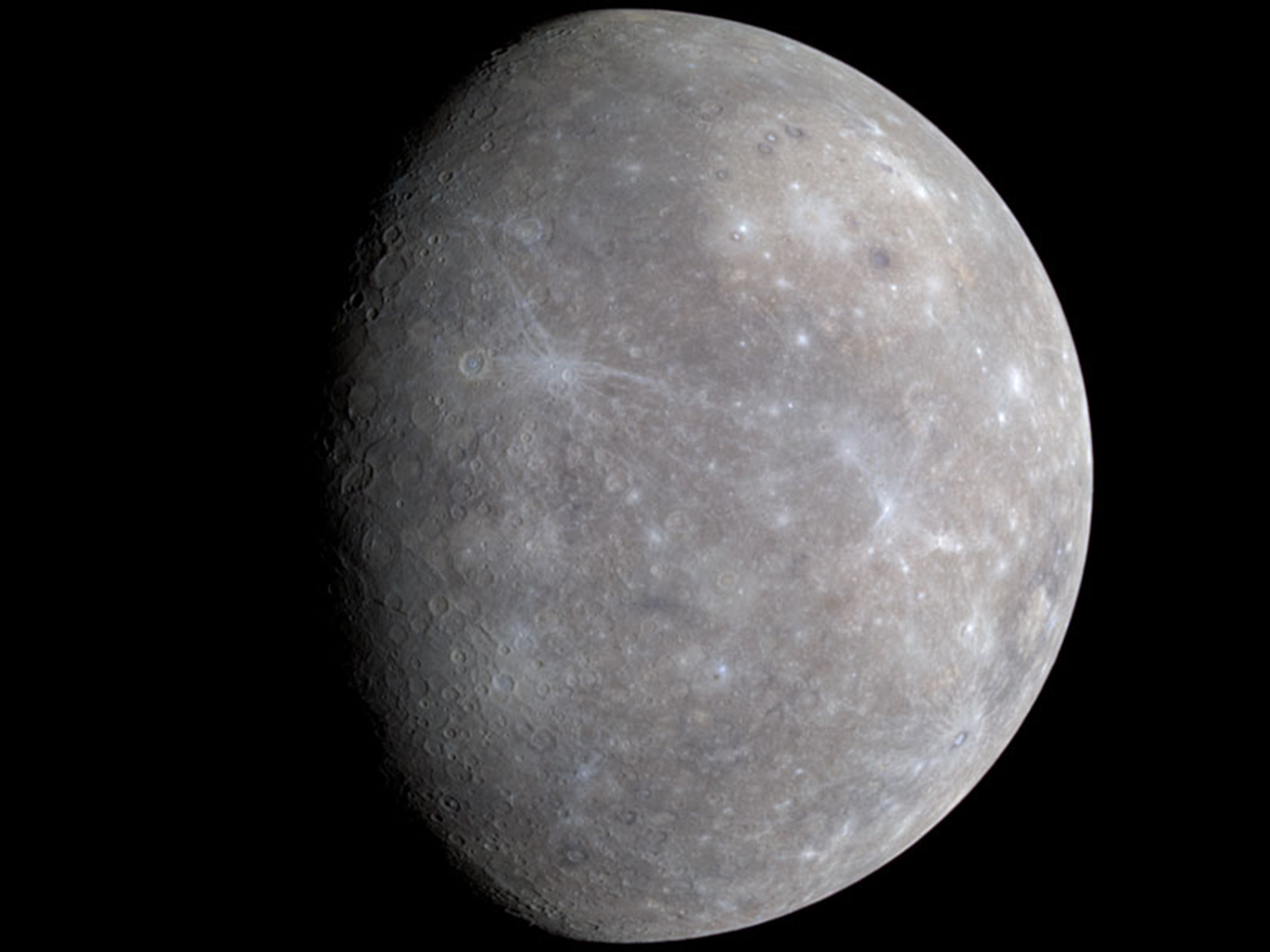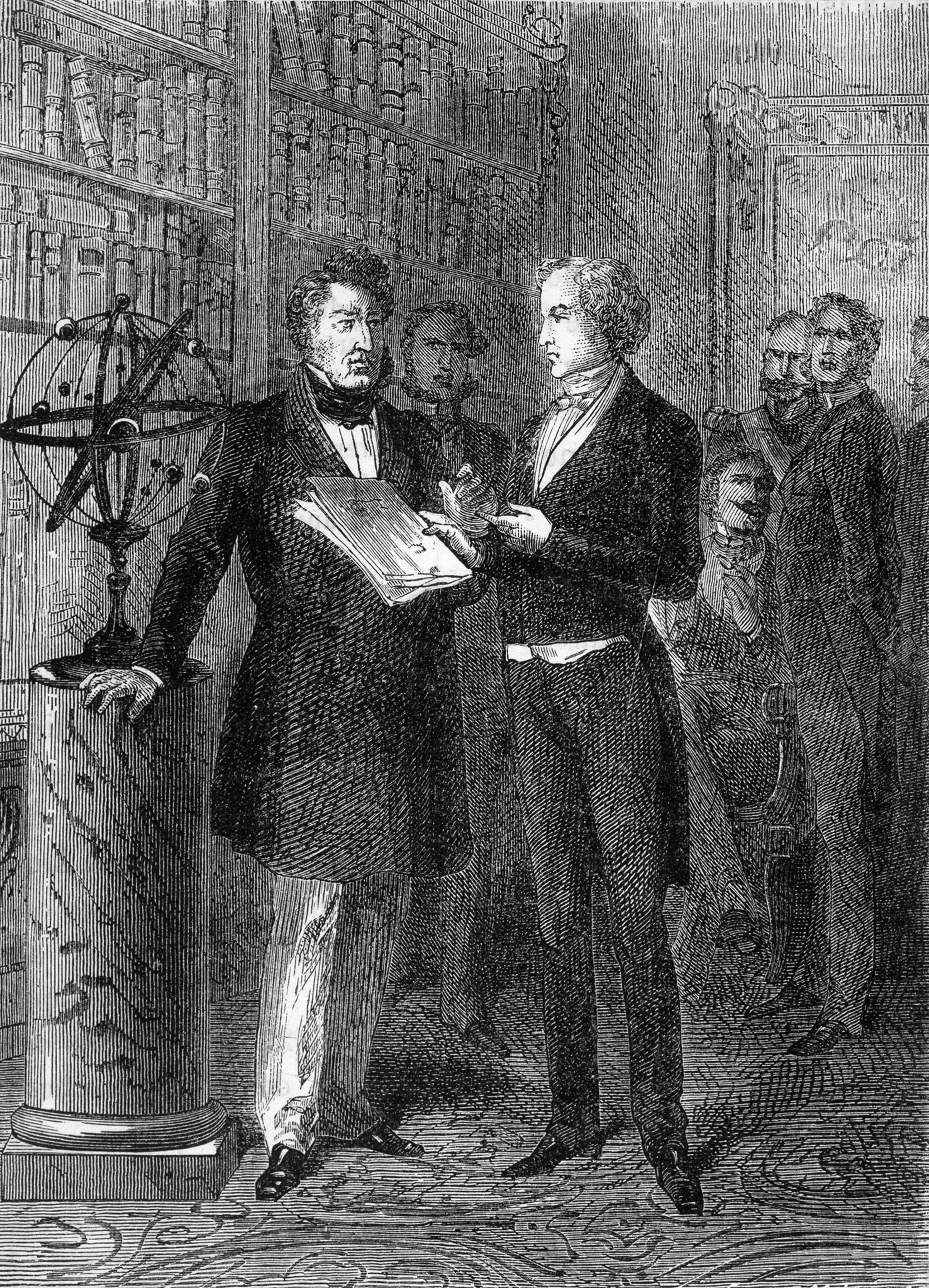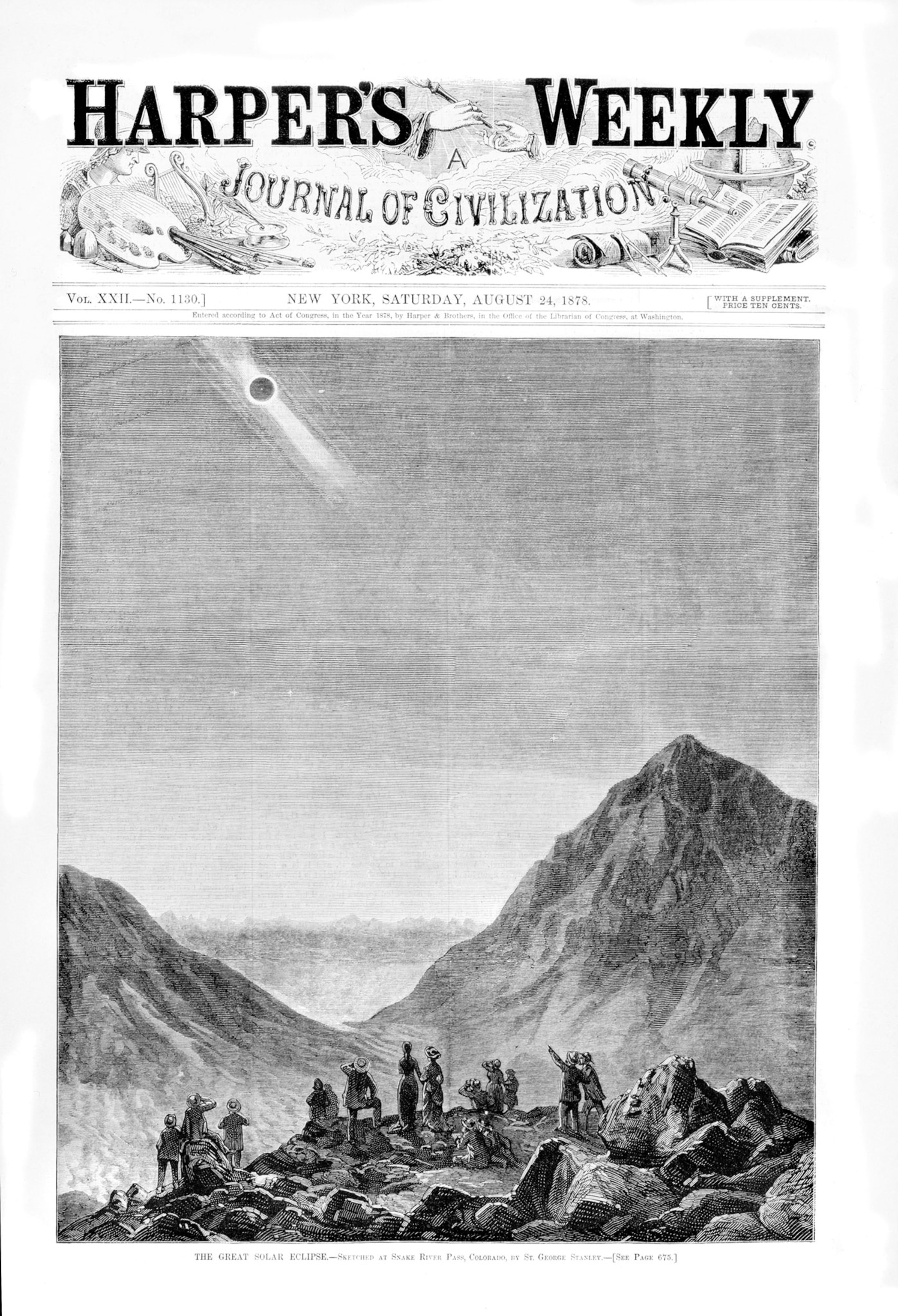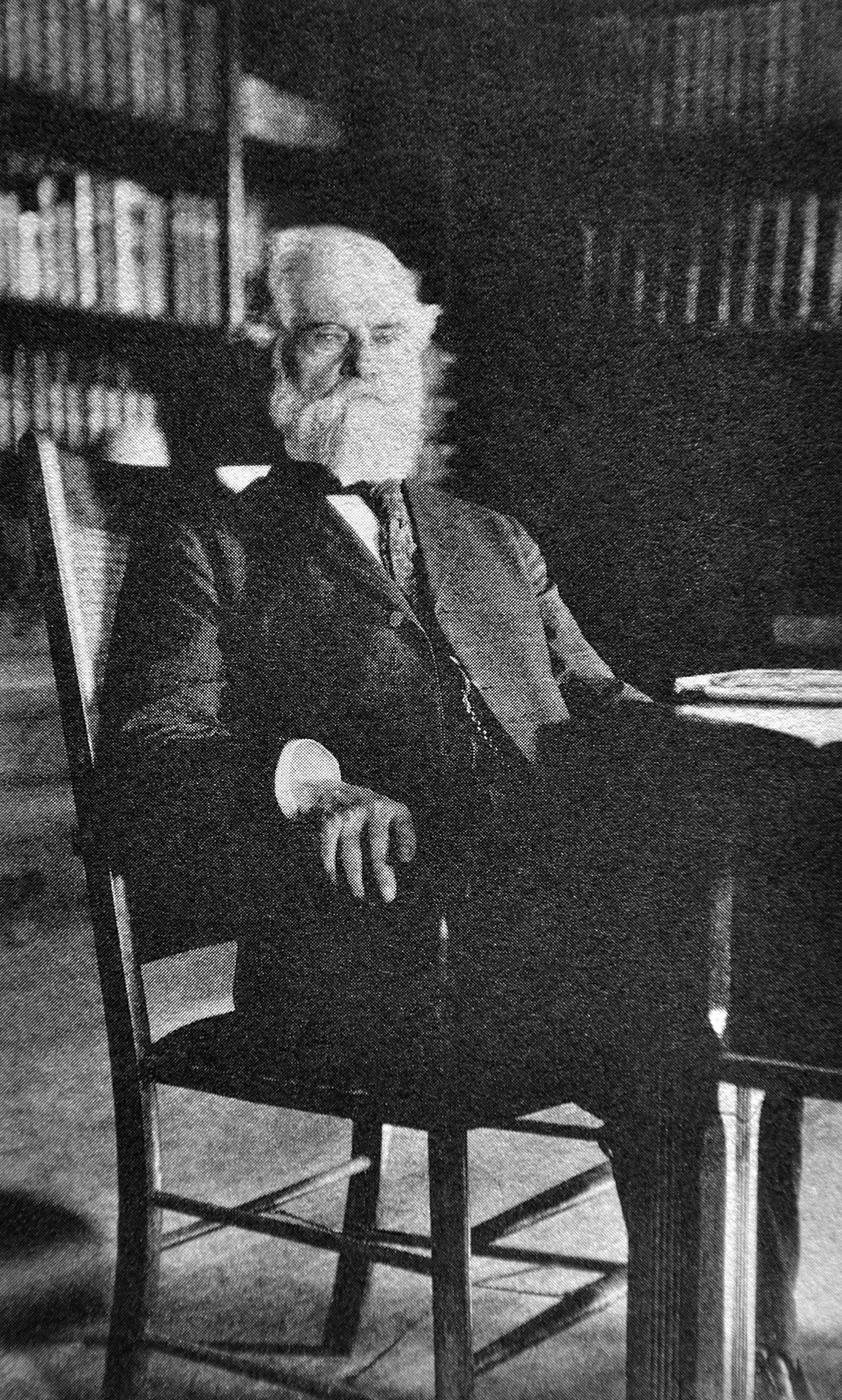
The Hunt for Vulcan, the Planet That Wasn’t There
Everyone thought the gravitational pull of an undiscovered planet made Mercury wobble. They were wrong. Albert Einstein explained why.
One hundred years ago today at the Prussian Academy of Sciences, Albert Einstein gave the first in a series of lectures that rewrote Newton’s laws of gravity and changed the world. In The Hunt For Vulcan: … And How Albert Einstein Destroyed A Planet, Discovered Relativity, And Deciphered The Universe, Tom Levenson reveals how this revolution could not have happened without disproving an obscure astronomical calculation.
According to Newton, Mercury’s wobble was caused by the gravitational pull of some other planet. Enter Vulcan—the so-called “other” planet—first observed in 1859; confirmed by the greatest astronomer of the day, Urbain Le Verrier; and hailed by The New York Times as one of the great discoveries of the century. Trouble was, it didn’t exist.
Speaking from the Massachusetts Institute of Technology, where he is Professor of Science Writing, the author explains how a provincial doctor in France triggered “Vulcan-mania”; how Einstein’s theory of relativity offered a totally new explanation of the universe; and why Vulcan still has lessons to teach about the nature of truth and illusion.
Today, the story of the ‘planet’ Vulcan barely registers as a footnote in the history of science. Why did you decide to pluck it from obscurity?
I came to Vulcan from Einstein’s perspective. There’s this marvelous story about Einstein, as he’s just at the point of the single greatest breakthrough of his career, the Theory of General Relativity. He’s preparing the third of four papers he delivers to the Prussian academy, and he does a calculation to see what his new theory predicts for the orbit of Mercury.
Vulcan is remarkable because the idea of this little body inside the orbit of Mercury makes perfect sense.Tom Levenson
His new theory correctly provides what astronomers call the table for Mercury, accurately describing how it moves around the Sun. Einstein tells friends about this in the most extraordinary language. He said he felt actual palpitations of his heart and that he was so excited he couldn’t work for three days, he was so overcome with joy. So, this grand theory that would explain the universe in a new way rested on this almost forgotten issue of what causes Mercury to wobble. And that made me curious.

You say, “Vulcan’s biography is one of the human capacity to both discover and self-deceive.” Explain.
Vulcan is remarkable because the idea of this little body inside the orbit of Mercury makes perfect sense. If you believe Isaac Newton’s theory of gravity, which everyone does at that time, the discovery of a slight wobble in the middle of Mercury’s orbit that can’t be explained by the tug of Venus or Earth has only one interpretation: there has to be an undiscovered planet or flock of asteroids that we can’t see because it’s too close to the sun but must be exerting some gravitational influence on Mercury.
Facts on their own don’t mean anything unless you have a framework to put them in. And the framework was Newton’s laws.Tom Levenson
Not only does that make absolute sense within the mathematical framework of Newton’s theory, it’s how scientists managed to figure out that Neptune had to be there based on the wobbles of the orbit of Uranus just a few years before.
The self-deception comes in that over the next 20 years, people believed they saw specks of light that corresponded to what they thought Vulcan should look during an eclipse: round objects crossing the face of the sun, which were interpreted as transits of Vulcan.

These were not just amateurs, but men like Urbain Joseph Le Verrier, the most famous astronomer in the world and director of the Paris Observatory. Only a few years earlier Le Verrier had discovered Neptune “at the tip of his pen,” by analyzing the wobbles in Uranus’ orbit. He had done a similar analysis of Mercury, so there was utterly convincing logic that Vulcan had to be real.
The first sighting of Vulcan was by amateur French astronomer Edmond Modeste Lescarbault. Put us inside his stone barn in the village of Orgeres-En-Beauce on March 26, 1859.
Edmond Lescarbault, a young doctor in love with astronomy, had built an observatory in a stone barn with a little dome on top of it. On that day in 1859, he sees a patient then goes across the backyard to his stone barn, climbs up and looks through his telescope.

As he trains his telescope on the sun, he sees a round object on the face of the Sun. He times it as it moves steadily across the sun, records the data, then another patient arrives, so he checks out that patient, then comes back to the barn. This round dot is still crossing the Sun. He tracks it continuously, taking notes on its path until it finally goes over the other edge of the Sun.
He sits on that result and says nothing. At this point he doesn’t know anything about Le Verrier’s work on Mercury. Finally, he learns about this in a popular account Le Verrier had published and sends a letter to Le Verrier.
Le Verrier is at a New Year’s Eve party when he gets the letter and treks out to Lescarbault’s house, which involves a train ride and then a 12-mile walk, to interrogate him. Le Verrier becomes convinced that Lescarbault really did see what he claims to have seen and that the proper interpretation is that this is a transit of a planet. It’s not clear who first named it, but it quickly became known as Vulcan.
You quote a contemporary as saying, “Everyone with a telescope was looking for Vulcan. Some found it.” Give us a picture of Vulcan-mania as it swept the world.
Two things: You have in Le Verrier the ultimate authority on the solar system. If he says Vulcan not only has to be there, but Vulcan has been found, then for almost everyone that makes it real. Astronomers go poring through old records, just as they had when Uranus was discovered, to see if it had been previously seen. If one amateur could find it, anybody with a telescope could. Suddenly, there was another object in the solar system, another confirmation of Newton’s theory of gravity.
Even Thomas Edison got in on the act. Put us on the ground in Rawlins, Wyoming in 1878.
The great eclipse of 1878 followed a track that started in Siberia, crossed over Canada, and then went all the way down the United States through Wyoming. This was such a major event that the U.S. government funded observation stations up and down the track of totality. Other astronomers who weren’t part of the official parties flocked to places regarded as the most likely to give a good view.
Disproving Vulcan’s existence was central to Einstein because it showed that this radical, bizarre new picture of his … was actually the right way to see the universe.Tom Levenson
One of the prime locations was Rawlins, Wyoming, a small town with a rail depot and a hotel. Thomas Edison was mostly there for some hunting and fishing. But he brings with him a new invention, the Tasimeter, which measures infrared radiation or heat. Edison wants to test it during the eclipse, to see if it will detect the heat of a solar corona.

On the day of the eclipse, Edison tries his instrument, which actually doesn’t work. He then goes up the rail track about ten miles from Rawlins to the now completely vanished outpost of Separation, Wyoming, where the two most famous Vulcan hunters of the day had set up their telescopes.
One of them, Simon Newcomb, had missed it. The other, James Watson, director of the Ann Arbor observatory, saw a little bright star where there was no star on his chart and said, that’s Vulcan. News of this discovery was reported all around the world within days.
Why was there such a powerful desire to believe in Vulcan that even the “newspaper of record,” The New York Times, jumped on the bandwagon?
There were two reasons. The first is scientific. Over the previous hundred years, the greatest mathematical minds in Europe and America had worked out more and more sophisticated models of the solar system using Newton’s laws, and they had always been right.
According to Newton’s laws, Mercury’s wobble has to be caused by some source of gravitational energy. There was no other way to think about it. Facts on their own don’t mean anything unless you have a framework to put them in. And the framework was Newton’s laws.
There is also a populist aspect. Why does the New York Times tease professional astronomers over their doubts about Vulcan? The answer is that there is a human impulse to say, ‘look at you smart guys, you don’t actually know everything, there’s stuff out there that maybe even you can’t handle.’
How was disproving Vulcan’s existence central to Einstein’s General Theory of Relativity?
Einstein’s theory of relativity explains the same phenomenon, but does so with a completely different kind of structure or picture than Isaac Newton. In Newton’s theory, gravity is a property that leaps across space between two bodies; a force that pulls on you. Einstein didn’t just say, my numbers are better. He said, you have to fundamentally change that picture of gravity, that understanding of what the properties of reality are.
The core of General Relativity is that space and time are not static, but dynamic and can change. The way they change is by the presence and motion of matter and energy. A vast mass like the sun creates curves in spacetime, which means that things don’t go straight. A ray of light passing close to the sun will travel a curving path.

Disproving Vulcan’s existence was central to Einstein because it showed that this radical, bizarre new picture of his, that spacetime is flowing, was actually the right way to see the universe. Mercury wobbles because that’s the shortest path it can take through the curved spacetime created by that huge dent imposed by the mass of the Sun. Without curved spacetime you need some other mass to pull on it. With curved spacetime, Mercury behaves exactly how Einstein’s theory says it should.
You call the story of Vulcan “a cautionary tale.” What lessons does it hold for us?
Vulcan teaches us how hard it is to understand what nature is telling us, how hard it is to understand when nature says no. There’s this famous phrase that a single brute fact can undermine the most beautiful theory. But that’s not how it worked for Vulcan, and it’s still not how it works. Until you have a framework that allows you to see that there’s an alternative to what you thought before, you can’t easily assimilate new facts.
People kept discovering Vulcan because the way they saw the world required Vulcan to be there. It took Albert Einstein to provide the framework in which Vulcan became not only non-existent, but unnecessary.
Simon Worrall curates Book Talk. Follow him on Twitter or at simonworrallauthor.com.